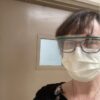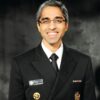What can be done?
What are some things that hospitalists can do, individually and collectively, to try to prevent moral distress from turning into full-scale burnout? Dr. Wocial emphasized the importance of unit-based ethics conversations. “At IU Health we have someone who is available to sit down with frontline clinicians and help unpack what they are experiencing,” she said. Clinicians need to be able to process this terrible experience in order to sort out the feelings of sadness from questions of whether they are doing something wrong.
Hospital chaplains are exquisitely skilled at supporting people and debriefing hospital teams, Dr. Wocial added. Palliative care professionals are also skilled at facilitating goals of care conversations with patients and families and can support hospitalists through coaching and joint family meetings.
“It’s about raising your sense of agency in your job – what in your practice you can control. People need to be able to talk frankly about it. Some managers say to clinicians: ‘Just buck up,’ while others are doing a fabulous job of offering support to their staff,” Dr. Wocial said. Hospitalists have to be willing to say when they’ve had too much. “You may not get help when you first ask for it. Be persistent. Asking for help doesn’t make you weak.”
Most doctors have their own strategies for managing stress on the job, Dr. Wachter noted. “What makes it a little easier is not having to do it alone. Many find solace in community, but community has been constrained by this pandemic. You can’t just go out for a beer after work anymore. So what are other ways to let off steam?”
The people leading hospitalist programs need to work harder at creating community and empathy when the tools allowing people to get together are somewhat limited. “Everybody is tired of Zoom,” he said. “One thing I learned as a manager was to just send messages to people acknowledging that I know this is hard. Try to think from the lens of other people and what they would find useful.”
The pandemic has been terribly unpredictable, Dr. Wachter added, but it won’t go on forever. For some doctors, yoga or mindfulness meditation may be very comforting. “For me, that’s not what I do. Golf or a good Seinfeld episode works for me.”
SHM’s Wellbeing Taskforce has created a “Hospital Medicine COVID Check-in Guide for Self & Peers” to promote both sharing and support for one another. It can be found at SHM’s Wellbeing webpage [www.hospitalmedicine.org/practice-management/wellbeing/]. The Taskforce believes that sharing common stressors as hospitalists can be healing, said its chair, Sarah Richards, MD, assistant professor of medicine at the University of Nebraska, Omaha. “This is especially true in situations where we feel we can’t provide the type of care we know our patients deserve.”
Respect, advocacy, self-care
Dr. Asken encouraged clinicians to focus on the efforts they are making on the job, not just the outcomes. “If someone has done their absolute best in a given circumstance, satisfaction and solace needs to be taken from that,” he said.
“Ongoing support group meetings, which we have called frontline support groups, should occur on a regular basis. Designated for physicians on the medical floors and in critical care units who are directly involved with COVID patients, these provide a brief respite but also engagement, sharing, and strengthening of mutual support.”
A lot of these issues have a fundamental thread, which comes down to respect, Dr. Barnes said. “Hospitalists need to hear their hospital administrators say: ‘I hear what you’re saying [about a problem]. Let’s think together about how to solve it.’ We need to work on being clear, and we need to speak up for what’s right. If you aren’t comfortable doing things you are being asked to do in the hospital, maybe you’re not working in the right place.”
Some efforts in the area of wellness and self-care really are helpful, Dr. Barnes said. “But you can’t exercise you way through a health system that doesn’t respect you. You need to get out of the mindset that you have no ability to make things different. We are not powerless as doctors. We can do a lot, actually. Physicians need to take ownership. If you are a hospitalist and you’re not part of any local or state or national organization that advocates for physicians, you should be.”
References
1. Dzeng L and Wachter RM. Ethics in conflict: Moral distress as a root cause of burnout. J Gen Intern Med. 2020 Feb;35(2):409-11. doi: 10.1007/s11606-019-05505-6.
2. Jameton A, Nursing Practice: The ethical issues. Prentice Hall Series in the Philosophy of Medicine. 1984, Englewood Cliffs, N.J.: Prentice Hall.
3. Wocial LD et al. Factors associated with physician moral distress caring for hospitalized elderly patients needing a surrogate decision-maker: A prospective study. J Gen Intern Med. 2020 May;35(5):1405-12. doi: 10.1007/s11606-020-05652-1.
4. Asken MJ. It’s not moral injury: It’s burnout (or something else). Medical Economics; June 7, 2019.
5. Asken MJ. Now it is moral injury: The COVID-19 pandemic and moral distress. Medical Economics; April 29, 2020.
© Frontline Medical Communications 2018-2021. Reprinted with permission, all rights reserved.



